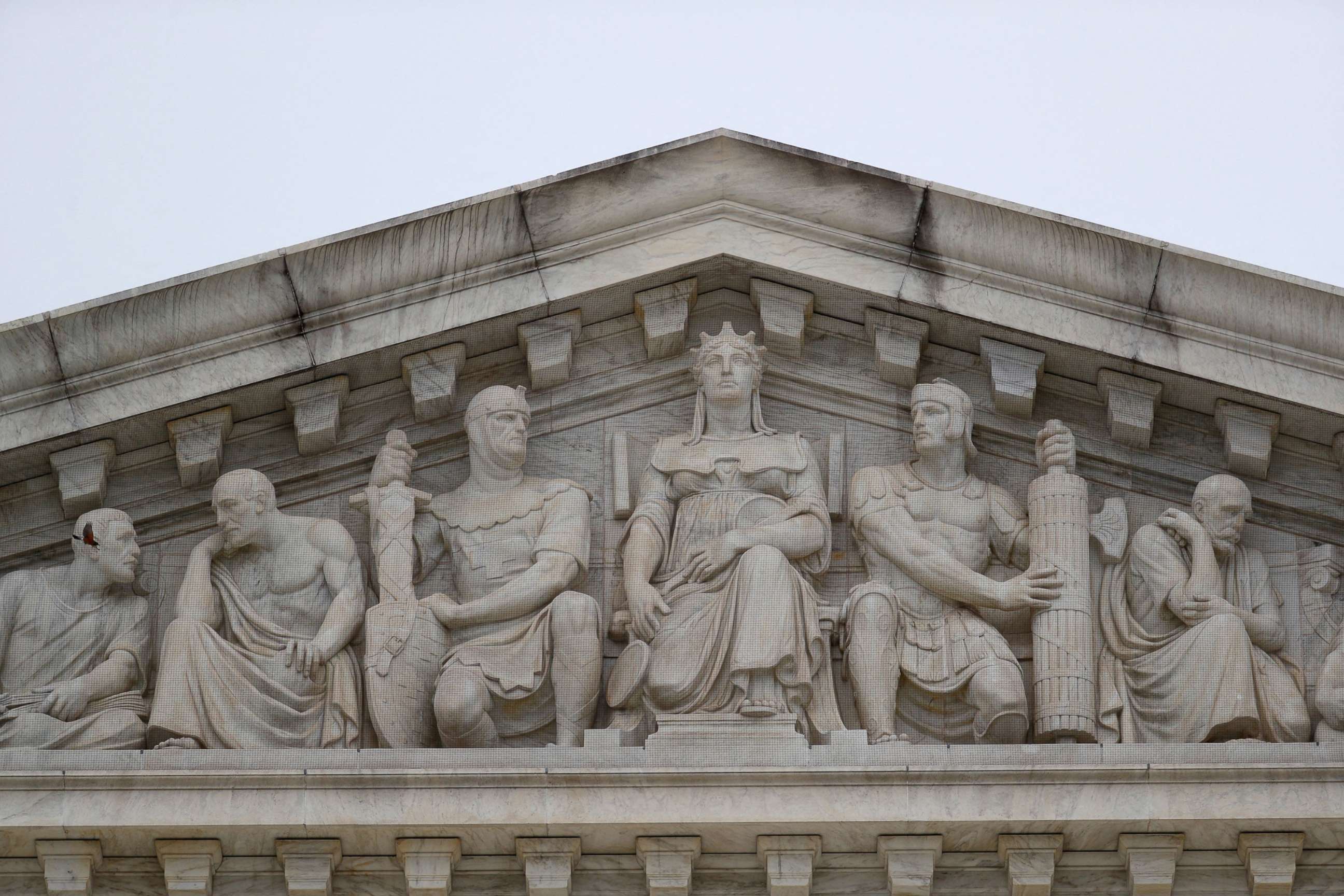Poll finds sharp partisan divisions on the impact of a Black woman justice
Confidence in Biden to pick a good nominee was split down the middle.
Leading into President Joe Biden’s first Supreme Court nomination, Americans are split along partisan lines on a range of attitudes relating to the high court -- approval of its job performance, confidence in Biden’s selection and how having a Black woman as justice would affect the country.
There is one narrow area of congruence in this new ABC News/Washington Post poll: Americans of all partisan stripes split about evenly on whether justices’ decisions are guided by the law or their personal political views. It’s a closely divided 46%-45%, overall.
See PDF for full results, charts and tables.
The Nomination
Biden, on Friday afternoon, is expected to nominate Ketanji Brown Jackson, a judge on the U.S. Court of Appeals for the D.C. Circuit, to fill the seat currently held by retiring Justice Stephen Breyer. In results from Sunday-to-Thursday interviews, confidence in Biden to pick a good nominee was split down the middle, 49%-49%.
That’s a similar result to one achieved by Biden’s predecessor, Donald Trump, in an October 2020 poll by the Pew Research Center, 47%-53%.
Jackson’s selection fulfills a Biden campaign promise to nominate a Black woman for the high court; if confirmed, she would be the first Black female justice in the nation’s history. The public again divides, 45%-48%, on whether having a Black woman on the court would be a good thing for the country or make no difference. A scant 4% say it would be a bad thing.
Black Americans call this a good thing by a 2-1 margin in this poll, produced for ABC by Langer Research Associates.
These split results hide wide partisan divides. Biden had the confidence of a vast majority of Democrats, 89%, falling to 43% of independents and just 18% of Republicans. In terms of intensity, nearly twice as many independents were not at all confident as were very confident in Biden’s ability to pick a good nominee, 39% versus 20%.
In a similar partisan division, 78% of Democrats say a Black female justice would be a good thing for the United States, versus 42% of independents and 16% of Republicans.

The Court Today
More Americans overall approve of the Supreme Court’s job performance than disapprove, 44%-36%; a substantial 19% have no opinion. Those most likely to approve of the current conservative-majority court include people with $100,000+ household incomes (55%), white Catholics (54%), and Republicans and conservatives (both 52%). It’s a close 46% among moderates and independents.
In contrast, just 33% of liberals and 38% of Democrats approve, along with 35% of those with incomes less than $50,000. Approval also is lower among Americans younger than 50, compared with older adults.
As noted, Americans also divide on how the high court’s current justices decide their cases -- whether mainly based on the law, 46%, or on their personal political views, 45%. That’s strongly associated with opinions on the court’s job performance: Among those who approve overall, 68% say the justices mainly decide based on the law; among disapprovers the result is flipped, with 66% saying they rule mainly based on their personal views.
Though there are no significant partisan differences on this question, there is a gap by political ideology. About half of moderates and conservatives say justices decide mainly based on the law, compared with 38% of liberals. Younger, less-educated Americans and those with no religious affiliation also are more skeptical of the idea that the law is the main guide for the justices; majorities in these groups think they decide cases primarily on the basis of their personal views.
While many think views-based decision making rules the day on the high court, few see it as optimal: In a Pew Research Center poll in January, just 13% thought justices should bring their own political views into how they decide major cases.
Methodology
This ABC News/Washington Post poll was conducted by landline and cellular telephone Feb. 20-24, 2022, in English and Spanish, among a random national sample of 1,011 adults. Results have a margin of sampling error of 4.0 percentage points, including the design effect. Partisan divisions are 27%, 26% and 40%: Democrats, Republicans and Independents.
The survey was produced for ABC News by Langer Research Associates of New York, N.Y., with sampling and data collection by Abt Associates of Rockville, Md. See details on the survey’s methodology here.




